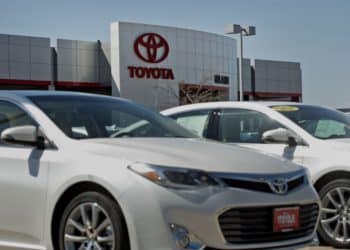Five questions with … Credit Acceptance CEO Ken Booth
CACC’s originations rose 0.3% in Q4
Credit Acceptance Corp. is eyeing growth through improving products, enhancing dealer and customer experiences and prioritizing credit access for nonprime consumers, Chief Executive and President Ken Booth told Auto Finance News.
Southfield, Mich.-based Credit Acceptance Corp. (CACC)’s originations and active dealer base grew in the fourth quarter, with the volume of consumer loan assignments up 0.3% year over year to 78,911 units, according to the company’s Jan. 30 earnings release. The number of active dealers increased 4.7% YoY to 10,149.
CACC has invested in scorecard changes, product innovation and technology to better manage portfolio risk and support dealers “more effectively,” Booth previously said.
The lender also increased its revolving warehouse facility to $250 million from $200 million in December and extended the agreement through Dec. 29, 2027.
CACC also issued a $400 million subprime auto asset-backed securitization deal on March 18, according to Finsight, which monitors securities. S&P Global’s expected cumulative net loss rate for the latest deal was reduced to 20.5% compared to 21% in the previous deal issued in September 2024, in part due to better performing loans in the collateral pool, according to a March 12 presale report.
AFN asked Booth five questions to learn about his goals at Credit Acceptance, top-of-mind lending trends and his leadership style.
Auto Finance News: How would you summarize Credit Acceptance’s goal this year?
Ken Booth: Credit Acceptance is known for being the best at working with the nonprime consumer base. We are proud to have great products, capabilities, support and sales teams to back that up.
This year, we’re focused on making our products better. That means giving dealers the tools they need to responsibly say “yes” to any consumer. To meet that goal, we are putting more resources into engineering and product development and reminding everyone on our team to deeply understand the dealers’ experience as we work with them.
AFN: What is the industry trend that is top of mind for you right now?
KB: Something that’s top of mind for me is access to credit for consumers and the impact of inflation on consumers.
While we cannot control inflation, Credit Acceptance, through its network of dealers, does provide consumers with access to the credit they need to buy a car, which is particularly important for the many who may not qualify for traditional financing. That is a major factor in why we are always working to help our dealers provide consumers with credit access and help them grow their business as a result.
AFN: What is your favorite piece of leadership advice you ever received?
KB: That for dealers, it’s not about selling a car — it’s about building a business. For Credit Acceptance, it’s not a transaction, it’s the chance to build a long-term relationship. That’s directly from our founder, Don Foss. Focusing on building relationships is how we approach not just our work with dealers, but also our workplace culture.
AFN: Who has had the biggest influence on your career?
KB: Our former CEO Brett Roberts. We worked together for a long time, and he was a great mentor to me. He pushed me to focus on what matters and execute flawlessly against those focus areas. It’s what I strive to work toward as a leader and it’s often the advice I’ll give our teams as well.
Clarity on focus is what drives success.
AFN: What do you think is the most underrated lending trend?
KB: Serving the nonprime consumer. For those who don’t qualify for traditional financing, the experience of buying a car can feel like an uphill battle. It’s something I think about a lot.
We’ve spoken to many customers who are credit-building or credit-rebuilding, and they can feel stigmatized in the process of trying to secure financing to buy a car. At the same time, over half of adults have less than prime credit, about 55%. That’s a huge segment of the population that a lot of companies are ignoring or not investing in supporting.
It’s unfortunate because we have so much data today that shows how access to cars really improves a person’s quality of life. Without access to a car or public transit, securing and maintaining a job becomes nearly impossible, with significant economic ripple effects for families and communities. It erodes public health, undermines economic mobility and perpetuates inequality.
Auto Finance Summit East 2025 is set for May 12-14 at the JW Marriott Nashville featuring fireside chats with Santander Consumer USA and Chase Auto. Visit autofinance.live for more information. Early-bird registration is available here.















